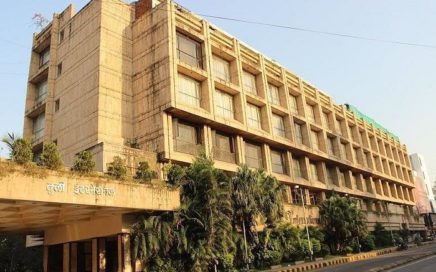Nagpur: India’s criminal justice system will undergo a complete overhaul from July 1, 2024, with three fresh criminal codes replacing the full set of British-era laws, including the Indian Penal Code. The three new criminal laws have been enacted by the Narendra Modi Government last year.
The Union Home Ministry on Saturday notified July 1 as the date when Indian Penal Code (IPC), Criminal Procedure Code (CrPC) and Indian Evidence Act will cease to exist and all First Information Reports (FIRs) of criminal offences shall be registered under provisions of the Bharatiya Nyaya Sanhita (BNS), the prosecution and trial in all cases registered under BNS proceed as per timelines laid down by the Bharatiya Nagarik Suraksha Sanhita (BNSS) and electronic records constitute legally admissible evidence under the Bharatiya Sakshya Adhiniyam (BSA).
Government clarified that all existing criminal cases as well as new cases to be registered before July 1, 2024 under the “outgoing” Indian Penal Code (IPC), Criminal Procedure Code (CrPC) and the Indian Evidence Act, shall continue to be prosecuted and tried as per provisions of the old laws, till final disposal.
While notifying the enforcement of BNS, BNSS and BSA from July 1, 2024, an exception was made in case of Section 106 (2) of BNS — which provides for up to 10 years imprisonment for causing death by rash and negligent driving and escaping without reporting the same to the police or magistrate.
The notifications on BNS and BNSS said Section 106(2) shall not come into force on the appointed date (July 1, 2024). This is as per the Home Ministry’s assurance to the All-India Motor Transport Congress (AIMTC) on January 2, 2024, in wake of the truckers’ protests against the provision, that any decision on enforcement of Section 106(2) shall be taken only after consultation with AIMTC.
The laws were changed to ensure speedier justice and be in sync with this day and age and the new forms of crime that occur, the government has said. Judgments are now required within 45 days of completion of trial and charges framed within 60 days of first hearing.
The new laws will allow any person to file a Zero FIR at any police station, regardless of jurisdiction; it will permit online registration of police complaints and electronic serving of summons.
The new laws make videography of crime scenes mandatory for all heinous crimes. Summonses can be served electronically, expediting the legal processes.
Union Home Minister Amit Shah has said the change was made to ensure “speedy justice and justice to all”. Proper implementation of these laws will require training and forensic teams, whose visits have been made mandatory for offences carrying a sentence of seven years or more, he said.
New provisions have been made in view of emerging crimes like gang rapes, killing by mobs, false promise of marriage and others. “This will increase the demand for forensic experts across the country, which the NFSU (National Forensic Science University) will cater to,” Shah has said.
The NFSU was taken forward as the new laws were being framed, he added. Campuses of this university have been opened in 9 states, which will be expanded to 16 states.
“These laws signify a watershed moment for our society because no law affects the day-to-day conduct of our society like the criminal law,” Chief Justice of India DY Chandrachud has said.
Under these new laws, all the familiar sections of the Indian Penal Code (IPC) will be reclassified. For instance, cases of murder will now be registered under Section 103 (1) of the BNS and replace Section 302 of the IPC. Similarly, robbery cases will be identified under Section 310 of the BNS, instead of the current Section 392. Rape cases will be registered under Section 64 of the BNS instead of Section 376 of the IPC.
To prepare for this transition, intensive training programmes have been conducted for personnel of Nagpur City police and Nagpur Rural Police. These efforts are crucial as judges, lawyers, and police personnel must familiarise themselves with the revised legal frameworks to ensure effective implementation.
Commissioner of Police Dr Ravinder Singal said that almost all police personnel of Nagpur Police have been imparted training of the new laws. The trained officials will be available for the police personnel on the telephone to solve their issues during the implementation, he said. He also said that the objective of the new laws is to enhance justice delivery.
The BNS, for instance, includes 20 categories and 385 sections, with 12 new sections introduced and penalties heightened in 30 cases compared to the IPC.
Superintendent of Police (SP) Nagpur Rural Dr Harssh Poddar said that the new laws would be implemented from midnight, and for this, almost 96 percent of Nagpur Rural police personnel have been trained. “Various events will be organised at police station levels for public awareness to inform about crimes against women and adopt a victim-oriented approach,” he said.

















